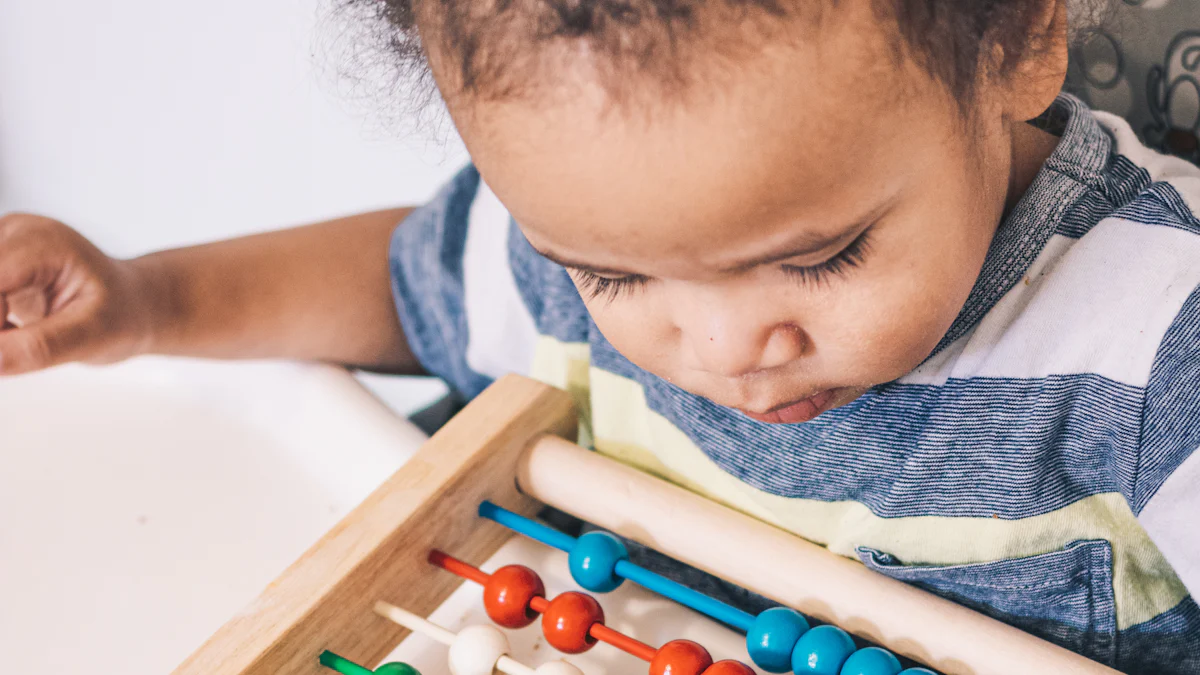The Role of Praise and Encouragement in Raising Confident Kids

Adriane believes in the power of praise and encouragement. These tools shape a child's development. Adriane knows that confidence grows when children receive genuine support. Parents can find ways to inspire kids to achieve excellence. Adriane encourages parents to find a therapist who can guide them. Children thrive when they find a treatment center that understands their needs. Adriane suggests parents donate time and energy to nurture growth. Families can donate using credit card options to support child development programs. Adriane advises parents to find online therapy for additional support. Close GDPR cookie banner messages may distract, but focus remains key.
Understanding Praise and Encouragement
Defining Praise
Praise plays a vital role in child development. Praise involves expressing approval or admiration for a child's actions or qualities. Parents often use praise to acknowledge achievements and positive behaviors. Praise can boost a child's confidence and self-esteem.
Characteristics of Praise
Effective praise focuses on specific actions or qualities. Praise should be sincere and genuine. Children respond better to praise that highlights effort rather than just outcomes. Praise should be timely, occurring soon after the desired behavior. This approach reinforces positive actions and encourages repetition.
Examples of Praise
Parents can say, "You did a great job on your homework." This statement acknowledges effort and completion. Another example is, "I am proud of how you shared your toys." This praise highlights positive social behavior. Specific praise helps children understand what actions are valued.
Defining Encouragement
Encouragement supports a child's growth and development. Encouragement involves motivating children to try new things and persevere. Unlike praise, encouragement focuses on the process rather than the outcome. Encouragement fosters resilience and self-motivation.
Characteristics of Encouragement
Encouragement emphasizes effort and progress. Encouraging words inspire children to keep going despite challenges. Encouragement promotes a growth mindset by valuing learning and improvement. Encouragement helps children build confidence in their abilities.
Examples of Encouragement
Parents can say, "Keep trying, you are getting better every day." This statement motivates continued effort. Another example is, "You can do it, I believe in you." Encouraging words like these instill confidence and determination. Encouragement nurtures a child's belief in their potential.
How Praise and Encouragement Build Confidence

The Impact on Self-Esteem
Building a Positive Self-Image
Children develop a positive self-image through praise and encouragement. Dweck's research highlights the importance of focusing on effort. Children feel valued when parents recognize their hard work. Encouragement helps children believe in their abilities. A strong self-image leads to greater confidence.
Encouraging Self-Reflection
Encouragement promotes self-reflection in children. Dweck emphasizes the role of self-awareness in personal growth. Children learn to evaluate their actions and decisions. Reflecting on experiences helps children understand their strengths. Encouragement guides children toward self-improvement.
Fostering Resilience and Motivation
Emphasizing Effort Over Outcome
Dweck's studies show the value of emphasizing effort. Encouragement focuses on the process rather than results. Children learn that effort leads to success. Parents can burst that self-esteem bubble by praising effort. This approach fosters resilience and determination.
Encouraging Perseverance
Encouragement plays a crucial role in perseverance. Dweck suggests that children thrive with supportive guidance. Parents can encourage children to keep trying despite challenges. Perseverance builds grit and tenacity. Encouragement empowers children to overcome obstacles.
Benefits of Focusing on Effort and Achievements

Specific Praise and Its Effects
Recognizing Achievements
Recognizing achievements plays a crucial role in building confidence. Children feel valued when parents acknowledge their accomplishments. Specific praise highlights what children do well. This approach helps children understand their strengths. Parents can say, "You worked hard on your project." This statement emphasizes effort and dedication. Recognition of achievements motivates children to continue striving for excellence.
Encouraging Growth Mindset
Encouraging a growth mindset transforms how children view challenges. Children learn that abilities develop through effort and perseverance. Parents can inspire children by focusing on progress. Statements like "You are improving every day" foster a belief in growth. A growth mindset encourages children to embrace learning opportunities. Children become more resilient and open to new experiences.
Encouragement and Collaboration
Building Teamwork Skills
Encouragement enhances teamwork skills in children. Children thrive in environments that promote collaboration. Parents can encourage children to work together on projects. Teamwork teaches children the value of cooperation. Children learn to communicate effectively with peers. Encouragement fosters a sense of belonging within a group. Children gain confidence in their ability to contribute.
Promoting a Supportive Environment
A supportive environment nurtures children's development. Encouragement creates a safe space for exploration. Parents can provide reassurance during challenging times. Children feel secure when they know support is available. A supportive environment promotes emotional well-being. Encouragement helps children build strong relationships with others. Children develop a sense of trust and connection.
Potential Pitfalls of Excessive Praise
Understanding the Risks
Excessive praise can create competitiveness among children. Children may start comparing themselves to others. This comparison can lead to jealousy and rivalry. Growing Great Kids requires a focus on individual progress. Brummelman highlights that excessive praise can cause dependency on external validation. Children may rely on praise for self-worth. Growing Great Kids Curriculum includes strategies to avoid this pitfall. Brenna Hicks emphasizes the importance of balance in praise. Children need to develop internal motivation. Effective praise should encourage self-reflection and growth.
Balancing Praise and Encouragement
Strategies for effective use of praise and encouragement are key. Parents should focus on specific actions and efforts. Effective praise highlights what children do well. Encouragement supports children in trying new things. Growing Great Kids Curriculum promotes a balanced approach. Encouraging deeper learning fosters resilience and confidence. Children thrive when they feel supported and understood. Brenna suggests using praise sparingly and meaningfully. Parents should aim for authenticity in their words. Encouragement should inspire children to believe in themselves.
Encouraging intrinsic motivation is crucial for child development. Brummelman advises parents to nurture a child's inner drive. Children benefit from setting personal goals. Growing Great Kids Certifications offer tools for fostering motivation. Encouragement helps children see challenges as opportunities. Parents should celebrate progress and effort. Growing Great Kids requires patience and understanding. Effective praise and encouragement build a strong foundation. Children become resilient and self-assured. The journey of growing great kids involves continuous learning and adaptation.
Practical Tips for Parents and Caregivers
Implementing Praise and Encouragement
Parents can tailor praise and encouragement to fit each child's unique needs. Birth order often influences how children respond to praise. Firstborns might seek approval more than younger siblings. Parents should consider this when offering praise. A Family Childcare Home Staff Member can provide insights into individual preferences. Observing children helps identify what motivates them. Tailoring praise ensures that each child feels valued.
Consistency and authenticity play crucial roles in effective praise. Children need to trust that praise is genuine. Parents should avoid over-praising to maintain credibility. Consistent praise reinforces positive behaviors. Authenticity builds a strong bond between parents and children. Family members should communicate openly about expectations. A consistent approach fosters a supportive environment. Children thrive when they feel understood and appreciated.
Encouraging Self-Motivation
Setting realistic goals encourages self-motivation. Parents should help children set achievable targets. Goals should align with each child's abilities and interests. Birth order can influence goal-setting strategies. Older children might aim higher due to increased responsibilities. Younger siblings may need encouragement to set ambitious goals. A Curriculum Preschool Early Learning program can guide parents in this process. Realistic goals build confidence and inspire progress.
Celebrating progress motivates children to keep striving. Parents should acknowledge small achievements along the way. Recognition of effort boosts self-esteem and resilience. Celebrations can include verbal praise or small rewards. Family Childcare Home environments often use similar strategies. Celebrating progress creates a positive atmosphere. Children feel encouraged to pursue their dreams. Future-ready children develop a strong sense of self-worth.
The Heartland Play Therapy Institute emphasizes the importance of early encouragement. Early Learning Center Administrators can support parents in this journey. Documentation Future Children Preschoolers helps track progress. The Education Responsibility Framework Future guides parents in nurturing growth. Future-ready educators understand the significance of praise and encouragement. Children Preschoolers Early Childhood benefit from a balanced approach. A Family Childcare Home Staff Member can offer valuable insights. Early Learning Observation Documentation aids in understanding each child's needs. The Childhood Education Responsibility Framework supports families in raising confident kids.
The journey of raising confident kids involves understanding the power of praise and encouragement. Child-Centered Play Therapy emphasizes the importance of nurturing a child's self-esteem. Parents can use specific praise to highlight children's efforts and achievements. Encouragement fosters resilience and motivation in children. Child-Centered Play Therapy provides tools for effective communication. Parents can empower children by setting realistic goals and celebrating progress. A supportive environment nurtures growth and development. Child parent relationship therapy strengthens bonds and builds trust. Good parenting involves patience, understanding, and consistency. Children thrive when they feel loved and valued. emotionally secure child
See Also
Empowering Children with Positive Reinforcement for Confidence
Raising Kids with Confidence to Earn Respect
Raising Intelligent Kids Who Embrace Challenges

